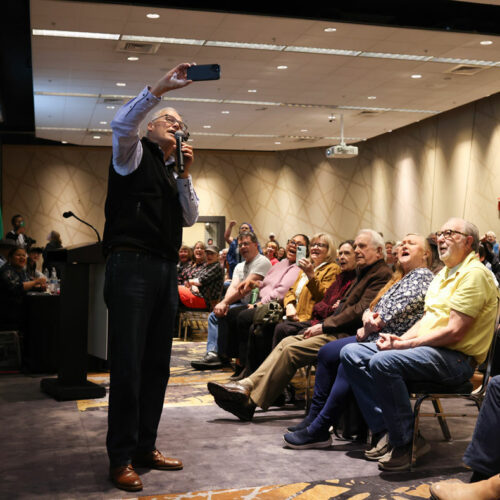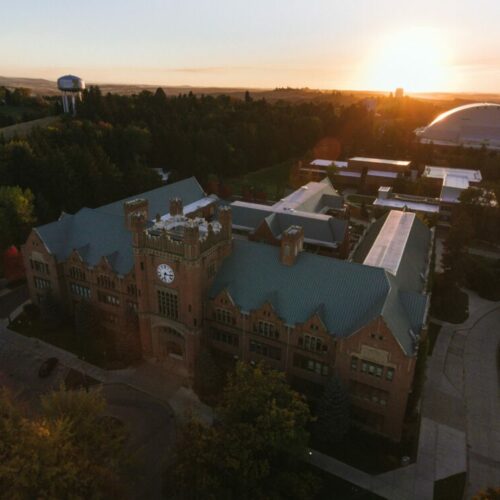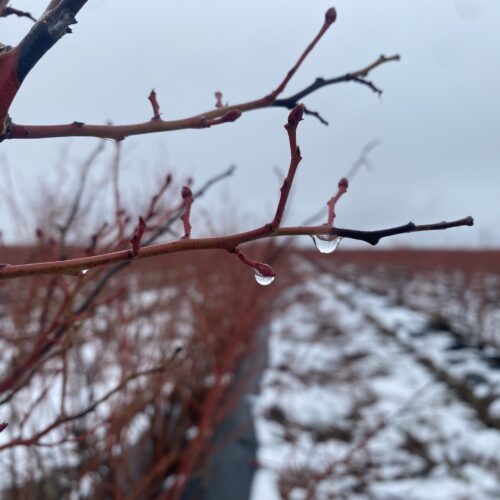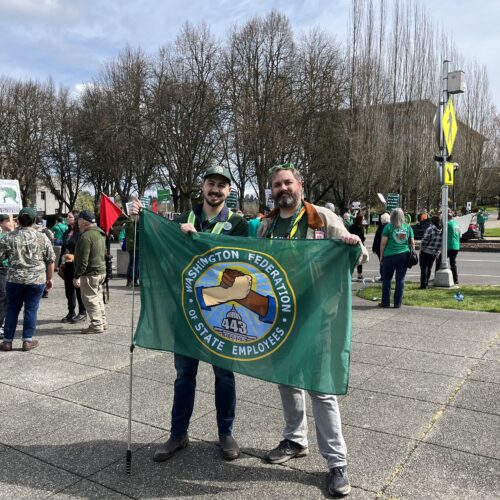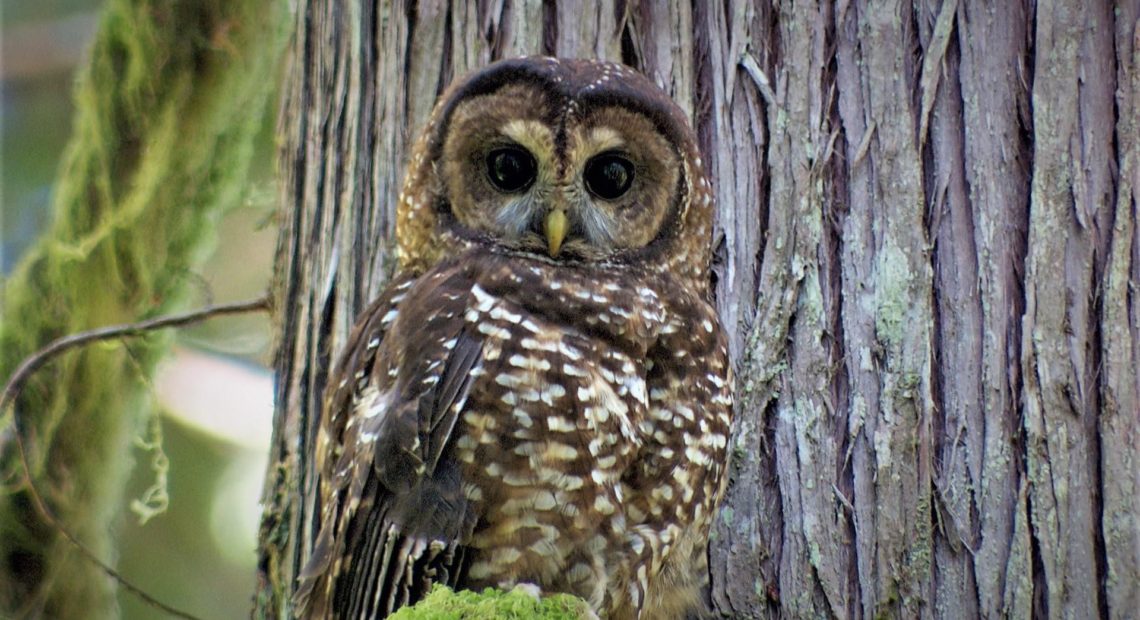
Much More Than A Spotted Owl Fight: Northwest ‘Timber Wars’ Of 30 Years Ago Revisited In Podcast
WATCH
Here’s a quick game: When you hear, “spotted owl,” what do you think of? If you were in the Northwest in the 1980s and 1990s, you may think of logging and a fight over endangered species versus jobs and lumber towns surviving. But there’s much more background in that fight than you may remember.
Journalist Aaron Scott explores that deep background, and connects it to today’s social climate and forest management debate, in the new podcast Timber Wars from Oregon Public Broadcasting.
He says the timber wars were really about much more than the spotted owl.
“But the point was always that they’re fighting to save the forest. And so, now even as we see the spotted owls really having a rough go as barred owls invade from the East Coast – to loggers that’s saying, ‘Look, Hey, we locked up the forest and what came of it, the owl’s dying anyway.’ But to environmentalists, it’s the feeling of, “Well, it’s gonna be sad if we lose the owl.” But what ultimately they were trying to do was save the forest,” Scott said on a recent episode of NWPB’s Uniquely NW News.
Watch the full episode above. See more from NWPB’s Uniquely NW News and all NWPB videos on YouTube.
Listen and subscribe to Timber Wars from OPB.
CONVERSATION HIGHLIGHTS:
(Edited for length and clarity)
On what exactly the “timber wars” were – or are:
If you step back just a little bit to the 20th century, not that long ago. The plan here in the Pacific Northwest was that we were gonna log through all of our old growth forests and we were gonna replant them with what were called kind of young vigorous thrifty trees. And we were gonna turn our national forests into big tree farms that we would kinda log on a sustaining basis for years and years. And as anyone who grew up here or anyone who’s flown over the Northwest knows, our landscape is covered in these clear cuts.
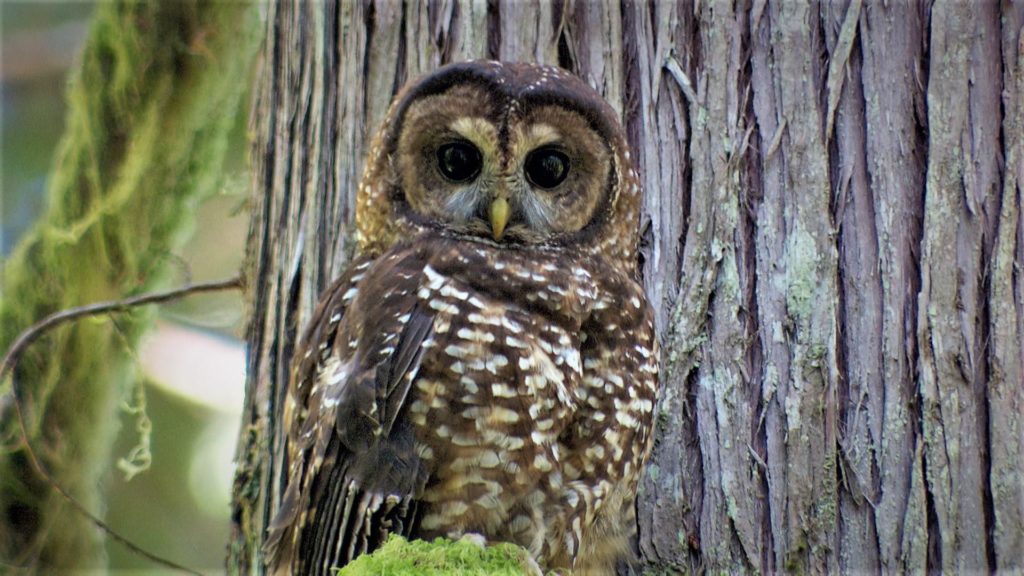
A northern spotted owl. CREDIT: Todd Sonflieth/OPB
And the timber wars really began in the ’80s when some activists started to get concerned and then outraged about the fact that the forest around them were disappearing. And these kind of old growth forests that are often referred to as cathedral forests or sacred spots were getting cut down and replaced with these new young tree plantations. So, activists started blockading locking roads and burying themselves in concrete and locking themselves around trees. And then very famously later on started sitting in trees for months or even years at a time and kinda started this war in the woods that pitted lagers against environmentalist in this fight to either log our forests or to preserve some of them. And we should be clear: it’s not a war between good and evil. And this is something we really focus on in the podcast that it’s really this struggle between two worldviews, which is to say our forest renewable resources that we can cut and replant and regrow over and over again. Or I’ve all growth ecosystems. You’re replaceable in a sense that, it will take many, many lifetimes for them to grow back to what they were and are they actually really complex places that serve different functions ecologically than these young forests that we replant them with serve.
On how to explain to people that the “war” really was about the spotted owl:
The owl is definitely the poster child of the timber wars and it’s the hero or the billing, depending on who you’re talking to. And to your question from environmentalists, it was always a legal tool. You’ll hear a lot of them say, there’s no Endangered Ecosystems Act, but there is an Endangered Species Act. So, there’s legal protections for animals that trees don’t have. So, for environmentalist, they use the owl as this leverage. … And so, we tell the story about how early on the environmentalist, or at least a lot of environmentalist didn’t wanna pursue the owl. They were afraid that it would take the focus away from the forest and that it might backfire. And it would alienate loggers because in many ways, I mean, that’s exactly what happened. It turned this fight into owls versus jobs. And it turned the Endangered Species Act. And a lot of the other environmental laws like the National Environmental Policy Act that were passed almost unanimously under Republican presidents back in the ’70s. It turned them into these partisan wedge issues that we’re living with today that now divide us along the lines of urban and rural and Democrat and Republican. And so, in many ways, the owl was kinda this focus of attention that took away from the forest and it was useful for environmentalists, but the point was always that they’re fighting to save the forest. And so, now even as we see the spotted owl was really having a rough go, is barred owls invaded from the East Coast. To loggers that’s saying, “Look, Hey, we locked up the forest and what came of it, that was dying anyway.” But to environmentalists, it’s the feeling of, “Well, it’s gonna be sad if we lose the owl.” But what ultimately they were trying to do was save the forest.
On whether we would have gotten a Northwest Forest Plan or how things may have gone differently if George H.W. Bush had won reelection in 1992:
I think the short answer to that is no, there would not have been a Northwest Forest Plan. And when you look back at it, it was pretty unprecedented. I mean, Bill Clinton flew out his vice president and half of his cabinet here to Portland, Oregon. And he sat down a whole group of people. Loggers, timber company owners, environmentalist, scientists, clergy, native American leaders around this big table. And he talked to them for a day and then he tasked his smartest scientist with coming up with this plan that would try to solve this big impasse.
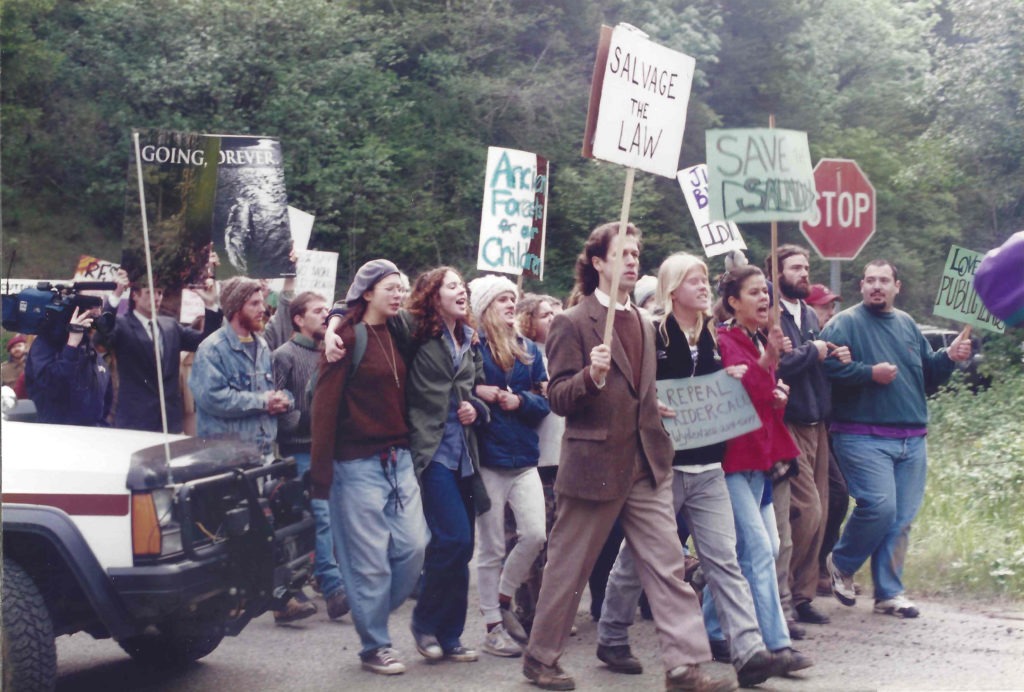
Activists march in protest of the “salvage logging rider” that was passed by Congress and signed into law by President Clinton in 1995. It released timber sales for logging and helped undermine Clinton’s Northwest Forest Plan. Courtesy of Mike Morrow / OPB
But to your question about what would have happened if Bush had won? And I think that’s pretty clearly not. I mean, the Bush and the Reagan administrations had both fought tooth and nail to keep timber harvest high. They ignored their own scientists. They pressured the U.S. Fish and Wildlife Service not to list the out list endangered or threatened. They basically repeatedly lost in court over and over again for ignoring environmental laws and Bush himself campaigned on saying, “Owls are not more important than people. And if that’s the way the laws are, we need to change the laws.” So, it’s very possible that when the Endangered Species Act came up for renewal, a couple of years later, if Bush had won, Congress might not have renewed it.
On connections between the environmental and anti-logging protests and demonstrations of thirty years ago and protest movements more recently:
There was this great footage of a grandma with her neck locked to a logging truck. And a documentary that we draw on and there were politicians and lawyers out there getting arrested. And one of the activists, we talked to talked about how, all these people came out to save trees and before they knew it, they were getting pepper sprayed and choke holds, and it radicalized a lot of people. And it really turned, especially in Eugene, Oregon, into this kind of hotbed of anti-capitalist and anti-globalization activism that very much influenced the WTO protests in Seattle in 1999. A lot of those protests tactics and kind of the philosophies and beliefs went on to inform the Occupy movement. I want to say, I think there’s a big difference between this and the racial justice protests of today, which you’re drawing a lot more on this civil rights protests and era. So, in many ways, I mean the timber wars were mostly white folks fighting on both sides. But what you do see, especially like here in Portland, where you hear these politicians kinda drawing these lines between good protesters and bad protestors, which are to say people are protesting peacefully and people who are more smashing windows. OPB just had a great article looking at that and how there is kind of this influx of anti-capitalists protestors who are in some ways taking over the racial justice and the Black Lives Matters protests. And that is very much some threads you see coming out of the timber wars of this much more aggressive protest tactics that have kind of, that we’re used to, especially here in Portland, seeped into the protests around Black Lives Matter.
On the recent devastating fires in September 2020 and whether towns from the podcast were affected and whether logging advocates said that could have been prevented if they’d been allowed to log more:
The town that I spent a lot of time in and really focus on in this area is Mill City. And the fires swept through there. The town itself mostly escaped, but a lot of the neighboring communities and a lot of the people I interviewed had, I mean, it’s a lot of houses burnt down. So, they were deeply affected by these fires. And it was heartbreaking to watch to know that many of the folks I talked to were losing their homes or their family were losing their homes. And when I did check in on folks to make sure that they were OK, that was oftentimes one of the first things I heard is, these fires are because we’re not managing the forests. And that’s basically the evolution of the timber wars. I mean, it went from fighting to protect old growth forest. To now this fight over what we should do with our forest prevent wildfire and in some ways define climate change. And the argument for the timber industry is very much evolved from, we need to log to keep these economies healthy to now we need to log to protect these forests. And that feels right to a lot of the people who’ve grown up in those forests because the fire is what is big and as common as they are now. And yet from a scientific standpoint, there’s not a lot of grounds, especially here on the west side of Oregon. If you look at maps of where these fires burned, they burned as much and oftentimes hotter through clear cuts through plantations and commercial forest that managing the forest did not slow down. And in many ways it made the forest more susceptible to fire.
Related Stories:
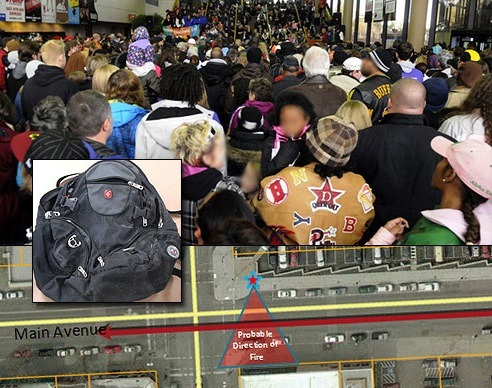
10 Years After White Supremacist Tried To Bomb Spokane’s MLK Parade, Extremism Is More Mainstream
This week marks 10 years since a white supremacist attempted to bomb the Martin Luther King Junior Day parade through downtown Spokane. The bomb was discovered and defused just in the nick of time. But the effects of extremist ideologies in the region lived on. Journalist Leah Sottile examined that in the podcast Bundyville, from Oregon Public Broadcasting. Leah spoke with Scott Leadingham in August 2019 about the podcast’s second season and the anti-government movement in the region.

Yakima Journalist Who Lost Her Mom To COVID: Don’t Let Gatherings This Season Take Yours
Emily McCarty is a Yakima-based reporter for Crosscut/KCTS. Her mom, Mary, died in a Spokane hospital in November, four days after being diagnosed with COVID-19. McCarty wrote about her mom and her family’s personal experience in an essay titled “I lost my mom to COVID-19. Don’t let the holidays steal yours.”
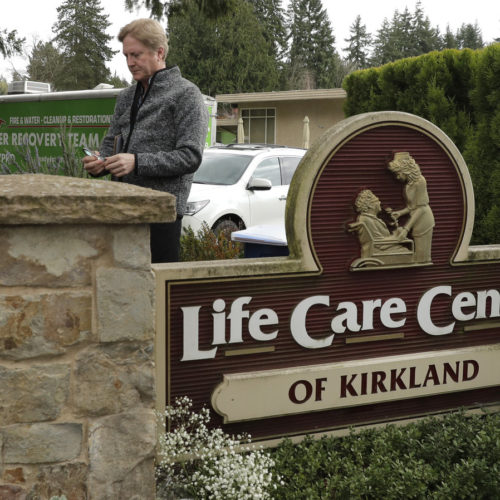
COVID First Hit Long-Term Care In Puget Sound Region. Now It’s Hitting Home In Rural Areas
Some of the hardest hit places have been long-term care facilities in rural areas like Tonasket in Okanogan County, and in central Washington. At least three care facilities in Grant County have reported outbreaks and deaths since a large wedding near Ritzville last month attended by some care facility staff who later tested positive for COVID-19. But a definitive connection between those outbreaks and the wedding remains unclear.



